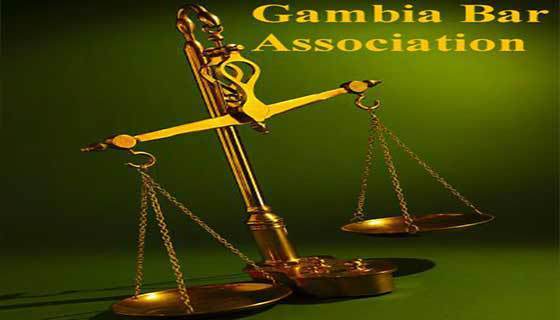By Bubacarr Drammeh
Let’s evaluate the legal fraternity of The Gambia on this concept. Throughout our history as a sovereign republic, when did The Gambia Bar Association, as an organization of lawyers, ever challenged the unconstitutional actions of our governments; or when ever did a Gambian lawyer, in a civic duty to society, challenged the unconstitutional actions of the state?
I grew up in a community, like most communities in The Gambia, where people hold the views that lawyers are liars. They believed that lawyers are deceitful and nefarious, who specialized in trading the truth for falsehood. The consensus — rooted deeply in their religious teachings — among them is that after lawyers die, they are more likely to rot in hell. They discourage their children from studying law in colleges and universities, but instead support them to pursue careers in the ‘noble’ professions.
As a young man growing up, this general indictment of lawyers was engraved as the truth in my heart to the point I never dreamt of becoming a legal practitioner. I was molded to pursue a career in anything but law because I do not want to go to hell. But then something happened that changed my perception towards pursuing a career in law. It was the callous and sadist response to the April 2000 student demonstrators in The Gambia. During the crises, I heard many people who shaped my belief that lawyers are liars, sincerely, saying that “only a good lawyer can help us get justice.” There and then, I convinced myself that if lawyers could be such useful component of society, then I would pursue a career in law to become a lawyer.

April 2000 is one of the dreadful moments in the history of The Gambia since the country gained its independence. Lawyers were deemed to be the light in that dark moment, the beacon of hope and the only professionals who can help victims get justice. What do they do? They turned their backs on the victims and the nation at large. They were oblivious to the plight of the nation. There was not a single lawyer or a group of lawyers who, altruistically, initiated challenges on behalf of the collective citizens where our governments have violated the people’s rights or governed out of their constitutional mandates.
Evidently, the only lawyer who filed a high-profile lawsuit against the state was Awa Sesay Sabally. She filed a lawsuit against the Inspector General of Police, acting as counsel for her husband—a family member. She, like other lawyers, did not file a lawsuit against the government because it is her responsibility to uphold the fundamental principle of justice as a lawyer, but she did so for her husband, who was brutally beaten by the security forces in the student demonstrations. It was not a challenge for democratic, constitutional or good governance for the collective Gambian people, but to fight for the right of her spouse. I would acknowledge that citizens have benefitted from the lawsuit of the Sabally couple as it set the rules for the retrospective application of the law. The primary motivation, however, was to seek justice for family—not the students.
Throughout the rule of Jammeh from 1994 to 2016, there has never been any instance where a lawyer or The Gambia Bar Association challenged the Jammeh government in court for the interest of the public. Since the 1997 constitution came into force, there has never been an instance where a lawyer proactively filed a lawsuit in any court, especially the Supreme Court of The Gambia, challenging the unconstitutional actions of the Jammeh regime.
In fact, there has been only a handful of cases before the Supreme Court of The Gambia challenging the unconstitutionality of the actions of the Jammeh regime. Undoubtedly, four cases are most prominent. The first one was filed by Kemesseng Jammeh, a politician, who challenged in the Supreme Court several enactments of the National Assembly. The second challenge was by Ousman Sabally (mentioned above), a teacher at St. Augustine’s Senior Secondary School. The state enacted the Indemnity Act to dismiss his case. The third was a challenge by The Gambia Press Union in collaboration with some prominent journalists including the late Deyda Hydara, Alagi Yorro Jallow, Demba Ali Jawo and Suwaebou Conateh, who filed a lawsuit challenging the constitutionality of the National Media Commission (Amendment) Act 2003. The fourth challenge came about when the clerk of the National Assembly declared vacant the seats of certain parliamentarians, whose political parties formed the NADD alliance. None of the aforementioned cases were initiated by a lawyer or The Gambia Bar Association. In fact, the only time The Gambia Bar Association, as a fraternity of lawyers, publicly made any statement against Jammeh was in December 2016 after he’d lost and conceded the election but withdrew his concession and refused to step down.
There is a saying that “Lawyers are the foot soldiers of our Constitution.” It is my stand, without any fear of contradiction, that Gambian lawyers do not act as foot soldiers of the constitution. The Gambian people, in their constitution honored The Gambia Bar Association as the only private organization or non-state entity to which a membership with a good standing is a requirement to hold a cabinet-level position in the government—the Office of the Attorney General and Minister of Justice. The Gambia Bar Association and its members do not see that as high privilege but took it for granted as a right or arrogantly even an entitlement. It was an unrequited favor, respect not to mention love.
We have consistently turned blind eye to the unconstitutional actions of the government. The latest evidence is the treatment The Gambia Bar Association and its members are according to the Barrow Administration just as we did with his predecessors. Gambian lawyers have been called upon, looked up to, relied upon and leaned on by the public time and again, but every time we failed the public. We failed to take on our responsibility as “society’s problem solvers” either as judges or counsels. Majority of us never represented a client gratuitous. We ask poor people ridiculous sums of money just to represent them in court, and many times help rich and powerful people ruin the lives of the socially-disadvantaged citizens of our country. Plenty among us take money from citizens but do not prosecute or defend their cases or appear in courts. On many occasions, plenty among us provide poor defense that could qualify as ‘lack of a competent defense’ to overturn convictions in proper democracies. So many among us engage in outright theft and extortions from poor clients. We play an active role in proliferating the public perception that lawyers are devious. Unethical and corrupt practices are more pervasive in the fraternity than in politics and in the general population. We have earned and, rightfully so, deserved the title society’s duplicitous.
Robert Kennedy once said “lawyers have their duties as citizens, but they also have special duties as lawyers. Their obligations go far deeper than earning a living as specialists in corporation or tax law. They have a continuing responsibility to uphold the fundamental principles of justice from which the law cannot depart.” Lawyers have a higher civic duty because of their knowledge of the law. They should be society’s guardians and custodians of the constitution. Thus, they must be vigilant in ensuring that the fundamental principles of justice are adhered to at all times.
I call on the Gambia Bar Association to work with the General Legal Council and the National Assembly to pass a law that will ensure that lawyers fulfill their obligations as society’s problem solvers. There must be strict application of the rules of ethics. For aspiring lawyers, the General Legal Council and The Gambia Bar Association must conduct thorough background checks before enrolling them to the Bar. For enrolled lawyers, the General Legal Council and The Gambia Bar Association must educate the public on the procedures to report an unethical act of any lawyer. Finally, The Gambia Law School must conduct its own background check prior to enrolling any student. It should incorporate into its admission requirements that students provide documented evidence demonstrating civic mindedness, voluntarism and engagement in community services. The Gambian people deserve the finest men and women as lawyers because society will continue to rely on them as problem solvers.
Abubacarr Drammeh graduated from the University of The Gambia with (Law Degree, LLB) in 2013, and from The Gambia Law School with (BL) in 2014. He was called to The Gambia Bar Association in 2015. He worked as a State Counsel and Prosecutor at the Attorney General’s Chamber. He is currently studying LLM in Sustainable International Development Law at the University of Washington, Seattle, in the United States of America.

